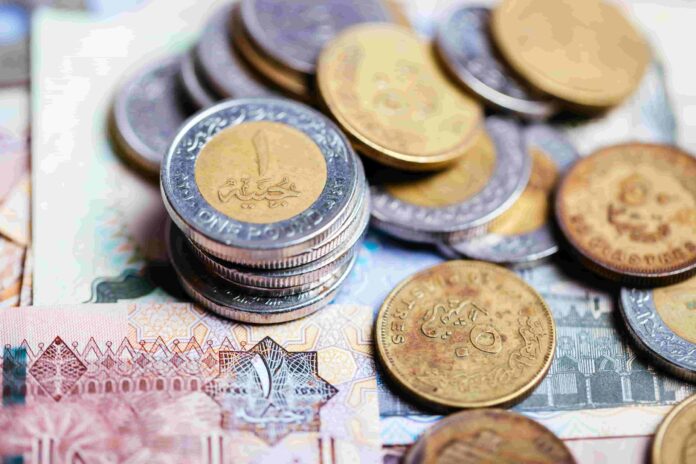Egypt witnessed a deterioration in business conditions in November, the sharpest since the outbreak of the pandemic in early 2020, as inflationary pressures undermined business activity and demand after a dramatic devaluation of the pound, a study by S&P Global showed on Monday.
“Output fell at the sharpest rate since the initial COVID-19 lockdown in May 2020, as a strong depreciation of the Egyptian pound caused purchase prices to rise at the sharpest pace in over four years,” S&P Global said in a statement.
The central bank said in late October that it plans to intensify economic reforms and had “moved to a durably flexible exchange rate regime, leaving the forces of supply and demand to determine the value of the EGP against other foreign currencies”.
The seasonally adjusted S&P Global Egypt Purchasing Managers’ Index (PMI), a barometer of the non-oil private sector’s operating conditions, dropped to 45.4 in November from 47.7 in October. Egypt PMI remained below 50.0, the mark that separates growth from contraction. Meanwhile, the PMI is the second lowest reading since the pandemic dragged the index down in June 2020 and the 24th consecutive month of contraction.
S&P Global said that central to the downturn was a rapid decrease in business activity as survey panellists reported that accelerated cost rises and falling new orders forced them to cut output.
“Egyptian firms faced an immediate hit to demand from a rapid depreciation of the pound since late-October with the November PMI results signalling the worst drops in output and new orders since May 2020,” David Owen, Economist at S&P Global Market Intelligence said.
Owen noted that the depreciation of the Egyptian pound against the dollar led to a marked increase in prices paid for raw materials which is being exacerbated by import restrictions since early 2022. The North African country is being confronted by a severe shortage of foreign currency despite a 14.5% devaluation of the pound and a $3 billion support package from the International Monetary Fund.




